For gardeners, summer is a special time. The long days of sunlight and warmth bring out fruits and flowers that add color and perfume to our gardens. Unfortunately, summer also brings out one of nature's greatest nuisances: the mosquito.
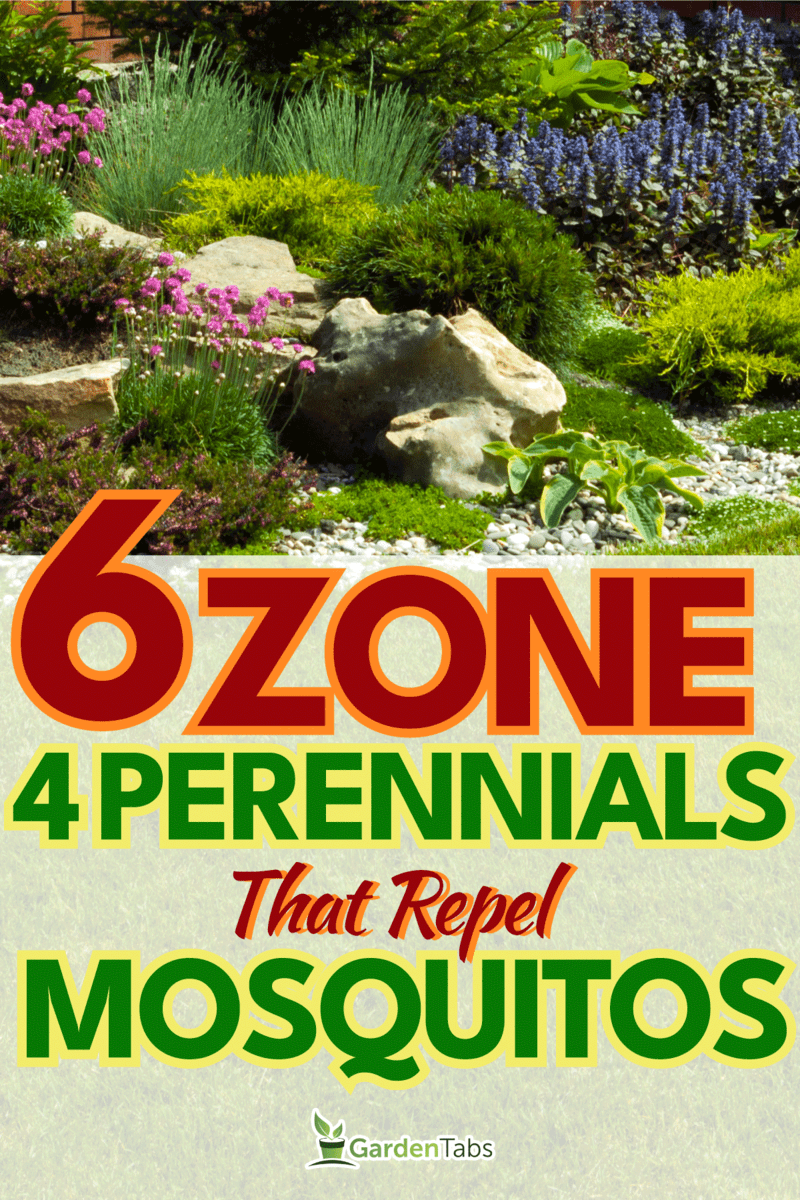
These blood-suckers bite, buzz, and irritate wherever they go. Even worse, they can carry diseases with them too. As a gardener, you may wonder how you can put your green thumb to work in the war against mosquitoes.
In this article, we'll show you six plants with mosquito-repelling powers that you can grow as perennials as far north as zone 4. After that, we'll take a look at some annuals you can add to your horticultural arsenal in the battle against mosquitoes.
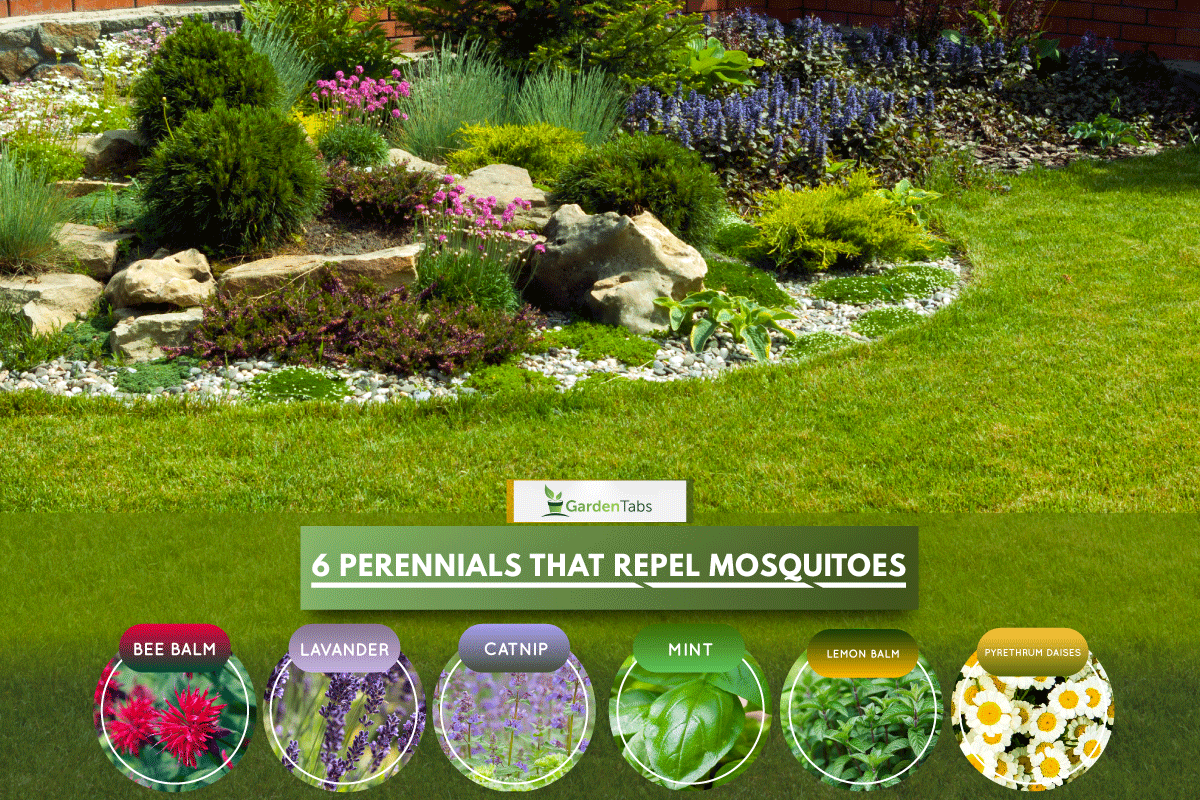
1. Bee Balm
One of the most hands-off mosquito repellants is bee balm. You can plant bee balm in either spring or fall. It does best in full sun with rich, moist soil that drains well.
Bee balm is available in several different cultivars which produce flowers in a variety of colors. These are mostly pinks and purples, but some cultivars produce white flowers, such as Monarda bradburiana, also known as Easter bee balm.
While hardiness varies slightly between different cultivars, most bee balm can be grown as a perennial in zones 4 through 9.
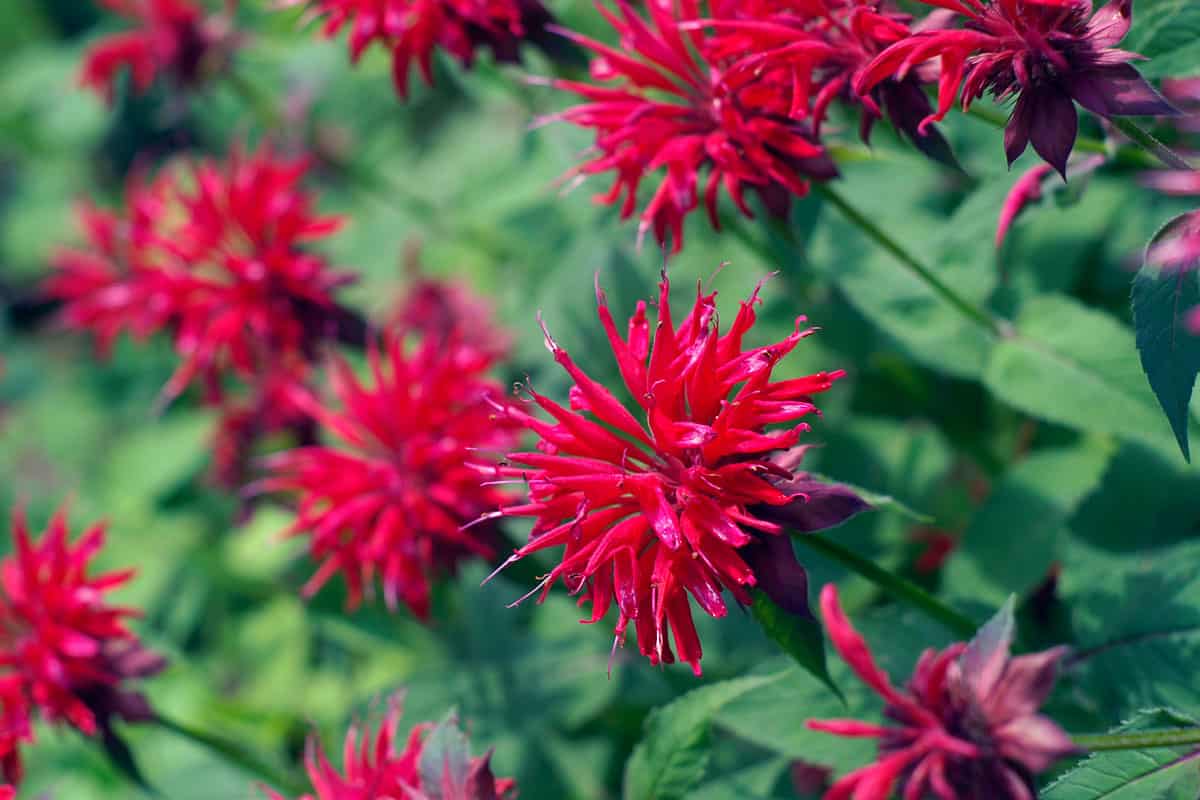
2. Lavender
Humans have been drawn to the calming scent of lavender for thousands of years. Not so for mosquitoes, though. They avoid this plant when in blossom, making it a great choice for repelling those vampiric pests.
Lavender produces stunning flowers that can also be used in culinary applications. This plant largely grew up along the Mediterranean coast, so it enjoys plenty of sunlight and well-draining soil.
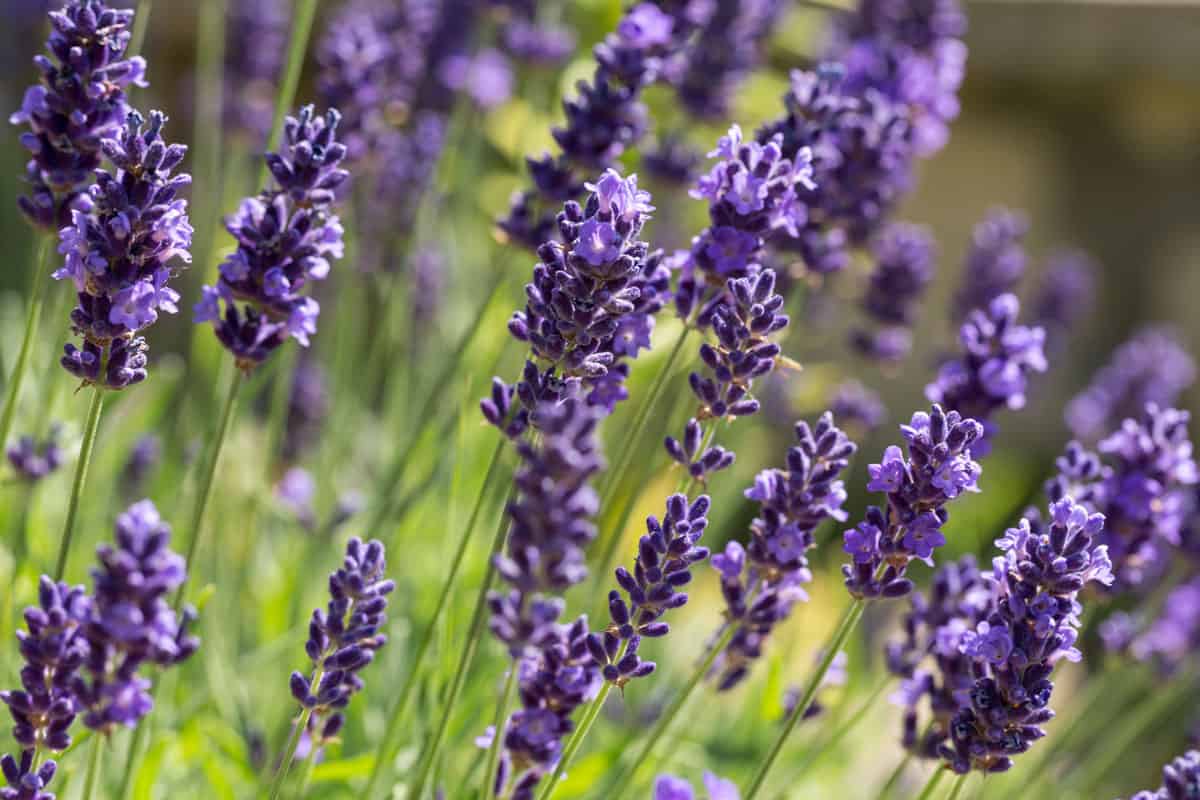
Due to this Mediterranean background, most cultivars cannot handle the harsh winters of zone 4. That is, without some proper preparation.
Choose varieties that handle cold weather better, such as Hidcote and Phenomenal. Before winter, cut your lavender back, then cover it with mulch and burlap to protect it from the cold.
3. Catnip
Few plants are as associated with a specific animal as Nepeta cataria, alias "Catnip." However, cats aren't the only animals this plant has a powerful effect on. The same plant that is alluring to our feline friends is a powerful repellant for mosquitoes.
But don't take our word for it. Scientists found that nepetalactone, an oil found in catnip, may even be more effective at repelling mosquitoes than DEET, the chemical in most commercial repellants.
However, catnip does require a more hands-on approach than bee balm when it comes to repelling mosquitoes. While the aroma released by bee balm is sufficient to offer some repellant, you'll need to release the oils from your catnip plant's leaves.
Rub the catnip leaves to release some of their nepetalactone-containing oils. Then rub those oils into your exposed skin to repel mosquitoes. As with any oil or repellant, avoid contact with your eyes and mouth. You may need to reapply if you stay outside for a long time.
This will help keep mosquitoes at bay, but you may find your cat won't be able to keep their paws off of you.
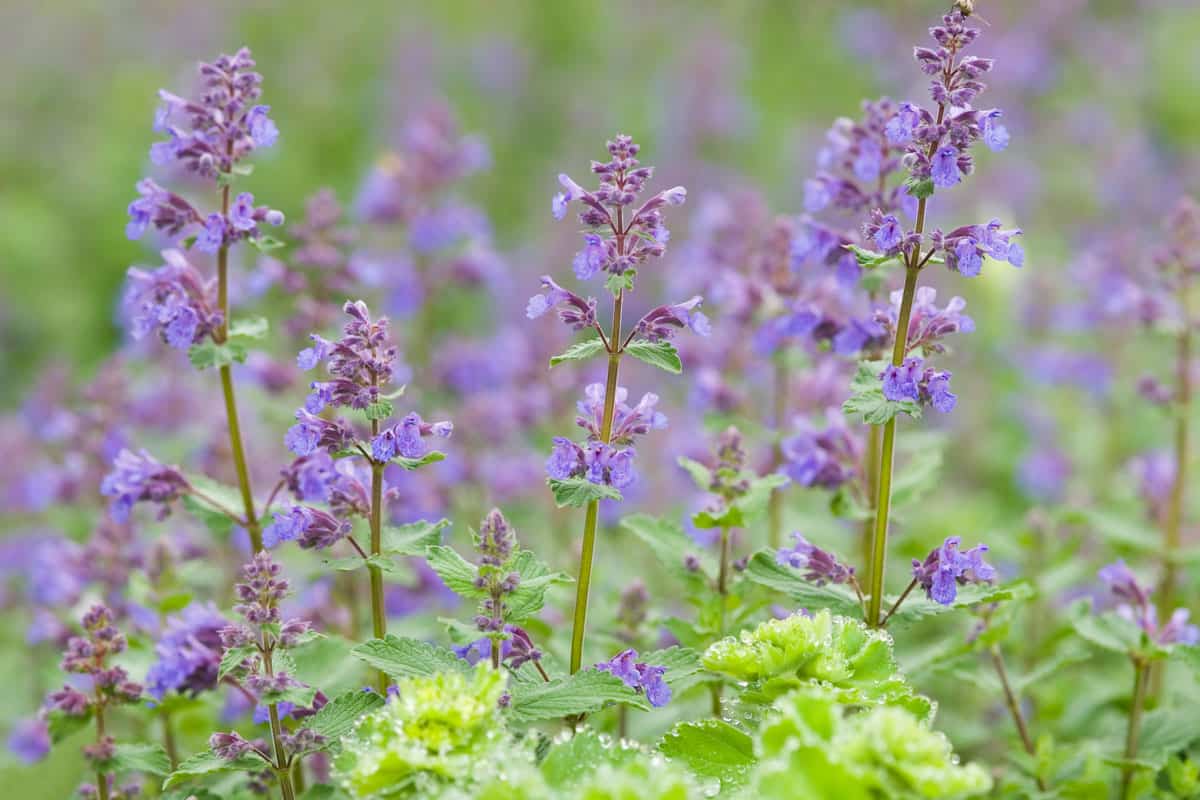
4. Mint
Much like catnip, the oils in mint leaves can be used as a natural mosquito repellant. Mint might not be as effective as catnip at this job. The research is not as conclusive, but studies involving applying mint essential oils do suggest that mint is at least somewhat effective.
Many find the aroma of mint's natural oils much more appealing than those of catnip (although cats may be to differ). Peppermint has a particularly strong aroma and is often the variety of mint oil used in studies.
Mint offers a lot of great benefits besides repellant to boot. It's an easy-to-grow herb for zones 3 through 8 and it has a variety of culinary uses as well. One thing to keep in mind is that mint is vigorous and can take over quickly. This is why many prefer growing mint in containers.
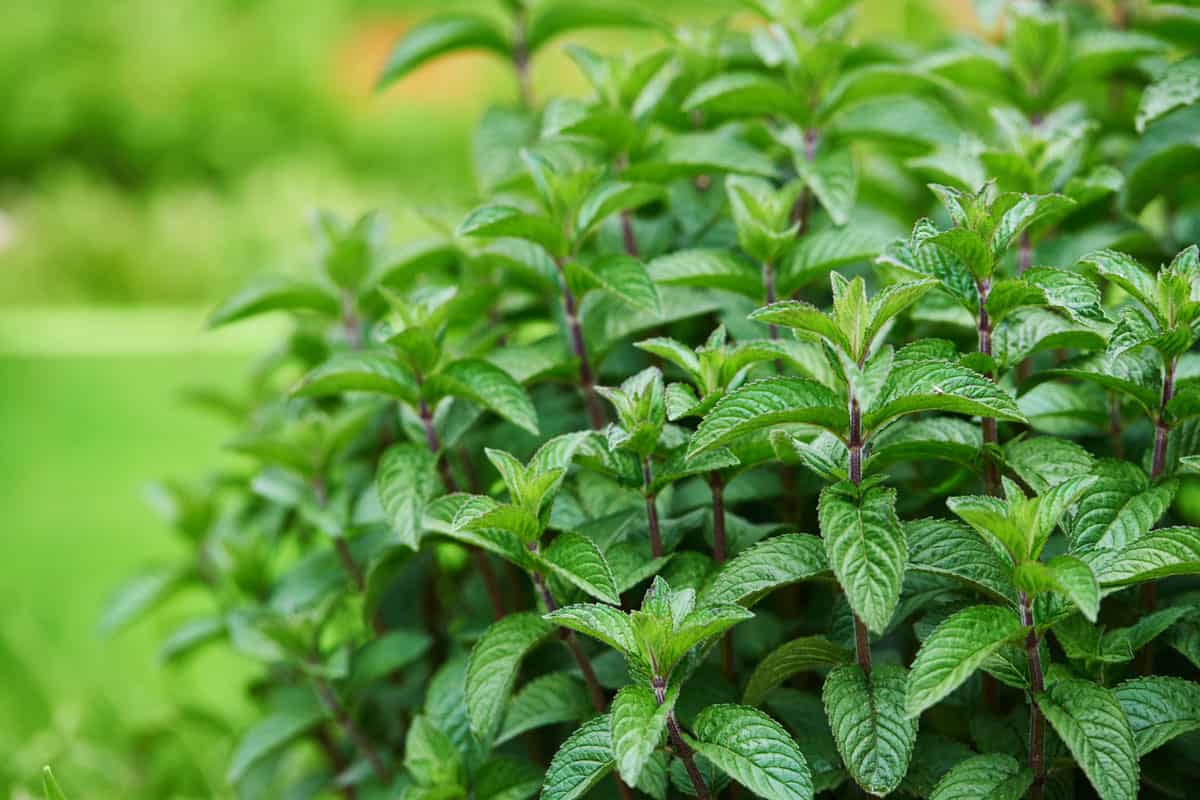
5. Lemon Balm
Lemon Balm comes from the mint family, but it may have different mosquito repelling qualities. While the repellent effects of lemon balm haven't been as widely studied as some others, preliminary studies do suggest that it may be a useful plant for this purpose.
This is because the oils of lemon balm contain two chemicals (citronellal and citronellol) which have been shown to be useful mosquito repellents.
Lemon balm is likely most effective when used like catnip or mint. That is, rub the leaves in your hands to release the oils and apply them to your exposed skin. However, some have suggested that mosquitoes avoid the plant in general, so you may find mosquitoes are less inclined to bother you if you have some lemon balm nearby.
These claims have not been thoroughly vetted scientifically yet, so take them with a grain of salt. However, you may find that lemon balm works for you and your garden.
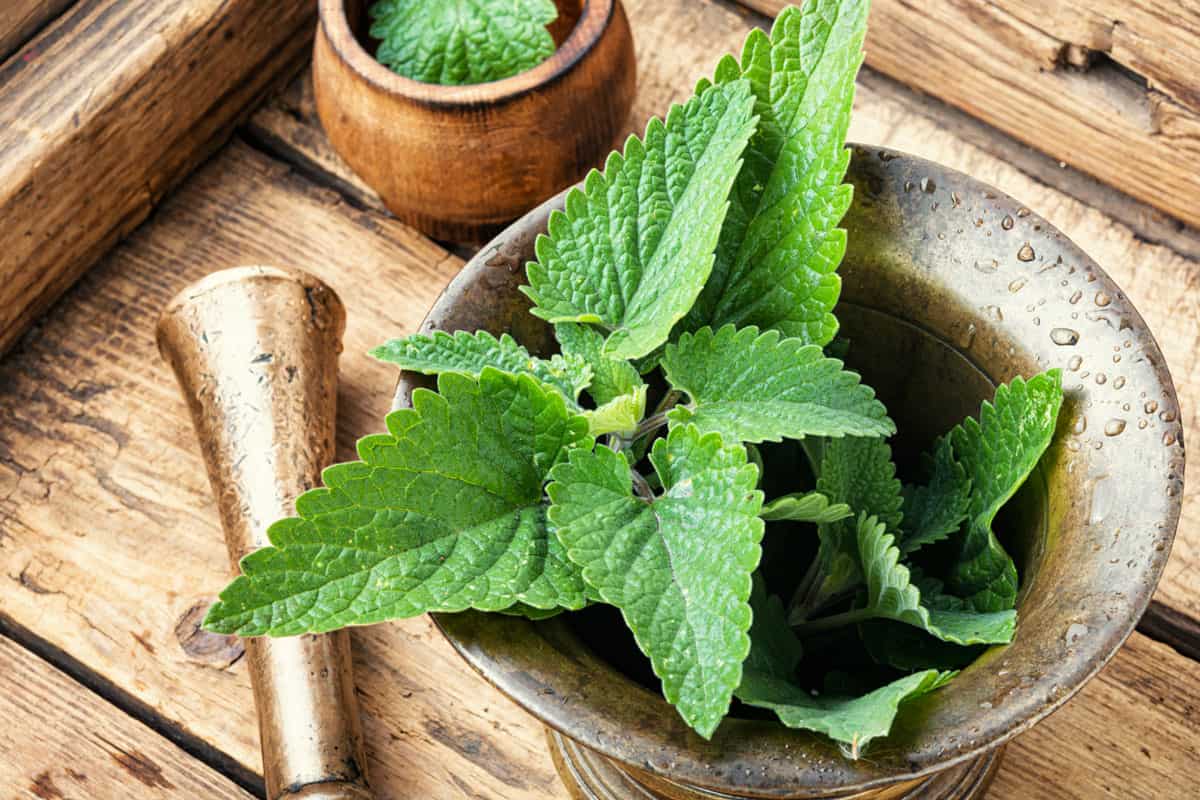
6. Pyrethrum Daisies
Pyrethrum daisies can be used to make a potent repellant and pesticide by concentrating some of their naturally-occurring chemicals. This use is well-documented and practiced in countries around the world.
Making a pesticide with pyrethrum requires concentrating the pyrethrin chemical in the plant's flowers. However, simply growing the plant may be sufficient to repel many pests, including mosquitoes.
Pyrethrum daisies are hardy in US zones 4 - 10. They are actually a member of the chrysanthemum family, but their small, white flowers have a daisy-like appearance. This perennial blooms in the early and mid-summer, when a bit of extra repellant can be most useful.
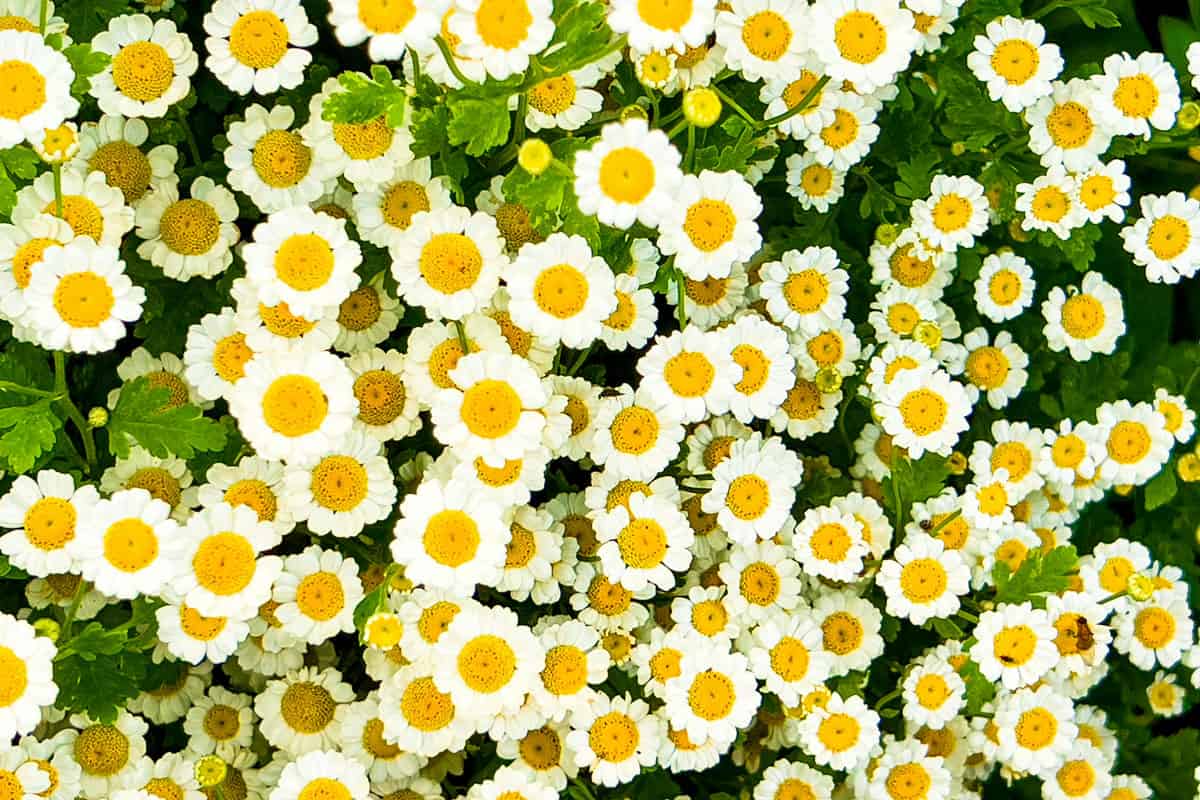
Annuals That Repel Mosquitoes
Many mosquito-repelling plants do not grow well as perennials in zone 4. This is because of the cold winters in these parts of the United States. However, that doesn't mean you can't benefit from them.
Instead, you can grow these plants as annuals. This means they will grow during the summer months, when mosquitoes are at their worst. You will need to plant new ones every year, but this can be well worth it for some reprieve from those blood-sucking pests.
1. Marigolds
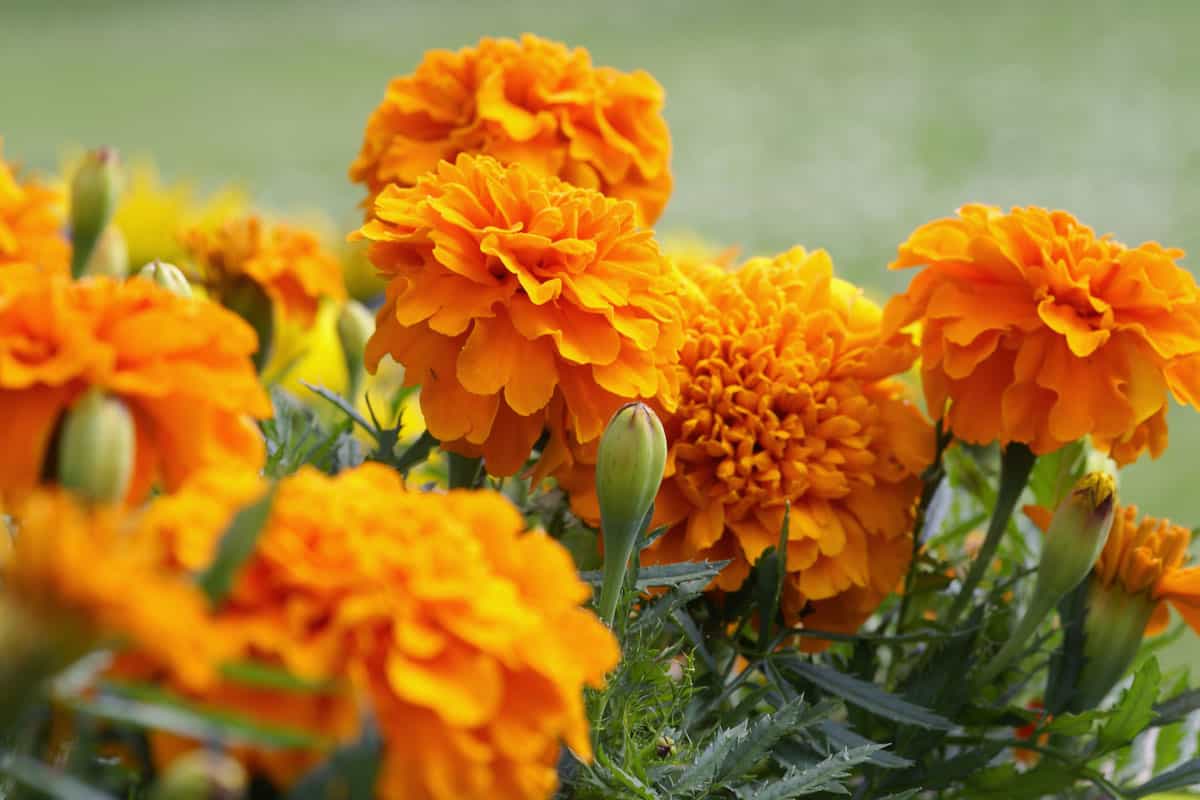
Marigolds are often grown along the borders of a garden. While most probably choose to do this because of their stunning, colorful flowers, the practice may have originated with marigold's insect repelling potency.
Marigolds contain the chemical pyrethrin, which we saw earlier in our discussion of pyrethrum daisies.
2. Basil
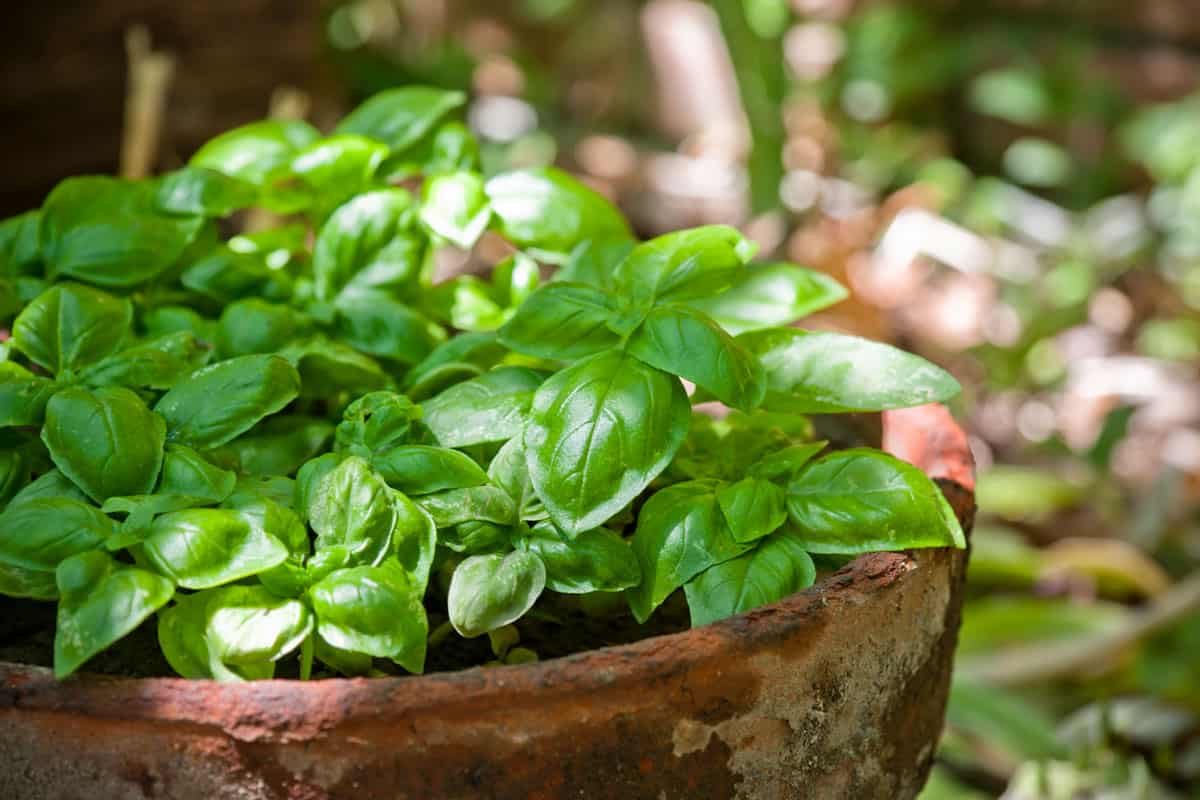
When spring comes, many gardeners start growing basil. You can enjoy the sweet aroma of this plant and it has many culinary uses to boot, especially for fans of Italian cooking.
Basil can also be used to keep away mosquitoes. Research has shown that applying basil essential oil topically is a very effective mosquito repellant and that burning basil also seems to have a similar effect.
Your garden may even gain some mosquito-repelling properties from the aroma naturally release from the basil plant. While this hasn't been researched as thoroughly, it is worth trying since basil already makes a great addition to your garden.
Basil can be grown as a perennial in warmer climates, but in zone 4 your best bet is to grow it as an annual. Basil damages easily with frost and most varieties are only cold hardy for zones 10 and 11.
3. Lemon Grass
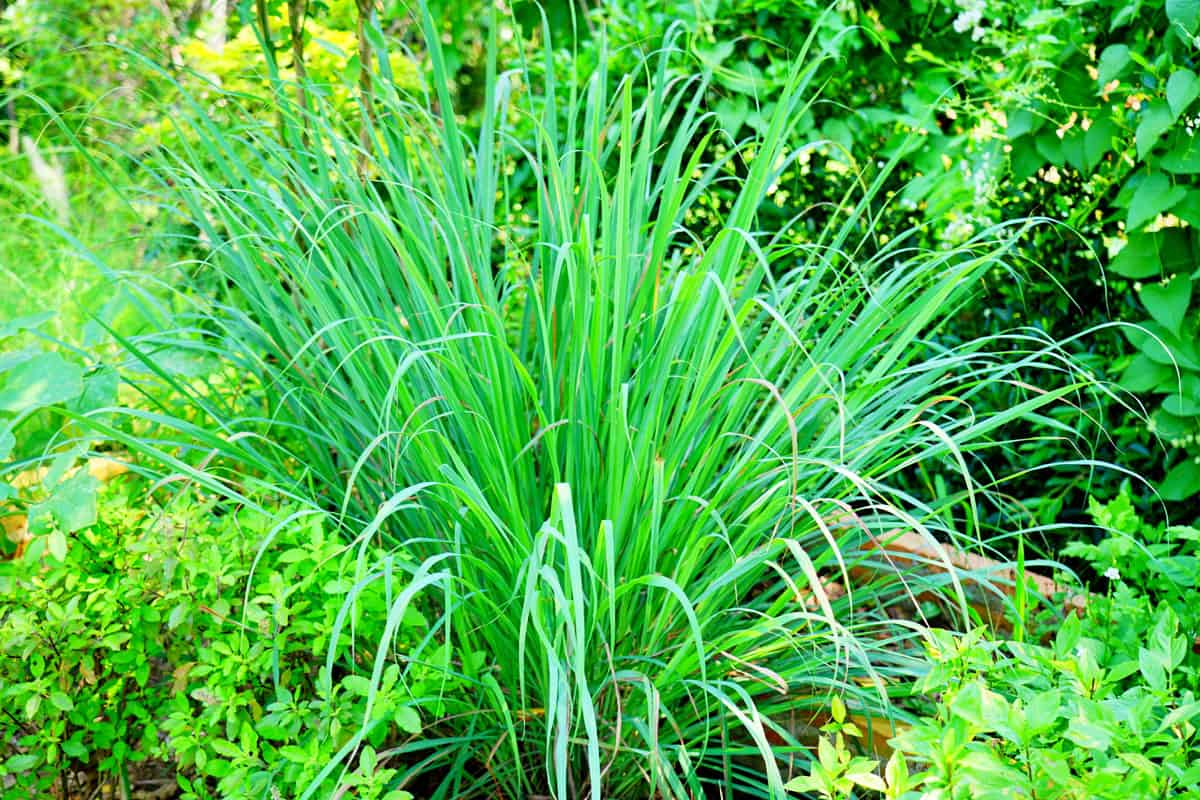
Citronella oil is perhaps one of the best-known ingredients in a number of mosquito repellents, including the popular citronella candles. Lemon grass is where most of this oil comes from.
This tropical grass only grows as a perennial in very warm parts of the country, but it can be grown as an annual in zone 4.
To get the most repellant benefits from lemon grass, you should crush up some of the leaves and rub the extracted oil on your skin. However, we recommend only using a small portion of skin at first, since some have reported skin irritation from the oil.
Lemon grass also has a variety of culinary applications. Save some stalks to make some scrumptious dishes with Southeast Asian flavors.
4. Floss Flowers
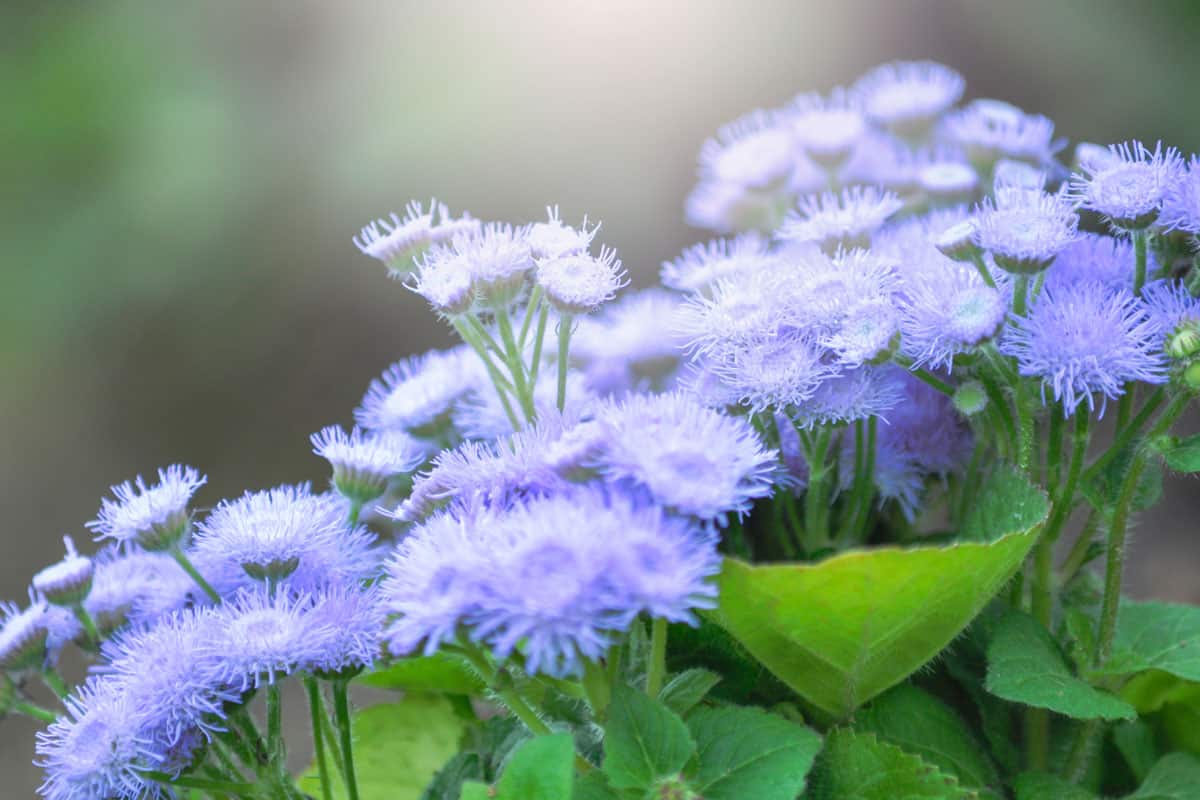
Ageratum, also known as "floss flowers," are popular annuals in many different zones across the United States. While they can be grown as perennials in zones 10 and 11, they don't deal well with the cold.
These plants get their nickname from their blossoms that look like colorful pompoms. This is why many gardeners grow them, regardless of their pest-repelling properties. And this may be for the best.
While we've included this flower on our list, evidence for its effectiveness as a mosquito repellant is anecdotal at this time. Many swear by it, but it hasn't been thoroughly researched as of yet.
One thing that is known about this plant is it can be toxic to animals that eat it. Because it contains toxins, you shouldn't apply it to your skin as with some of the repellant plants we've seen on this list.
That being said, adding it to your garden certainly won't do any harm and may even help. But temper your expectations and stick to more reliable methods if you need a heavy-hitting mosquito repellant.
Conclusion
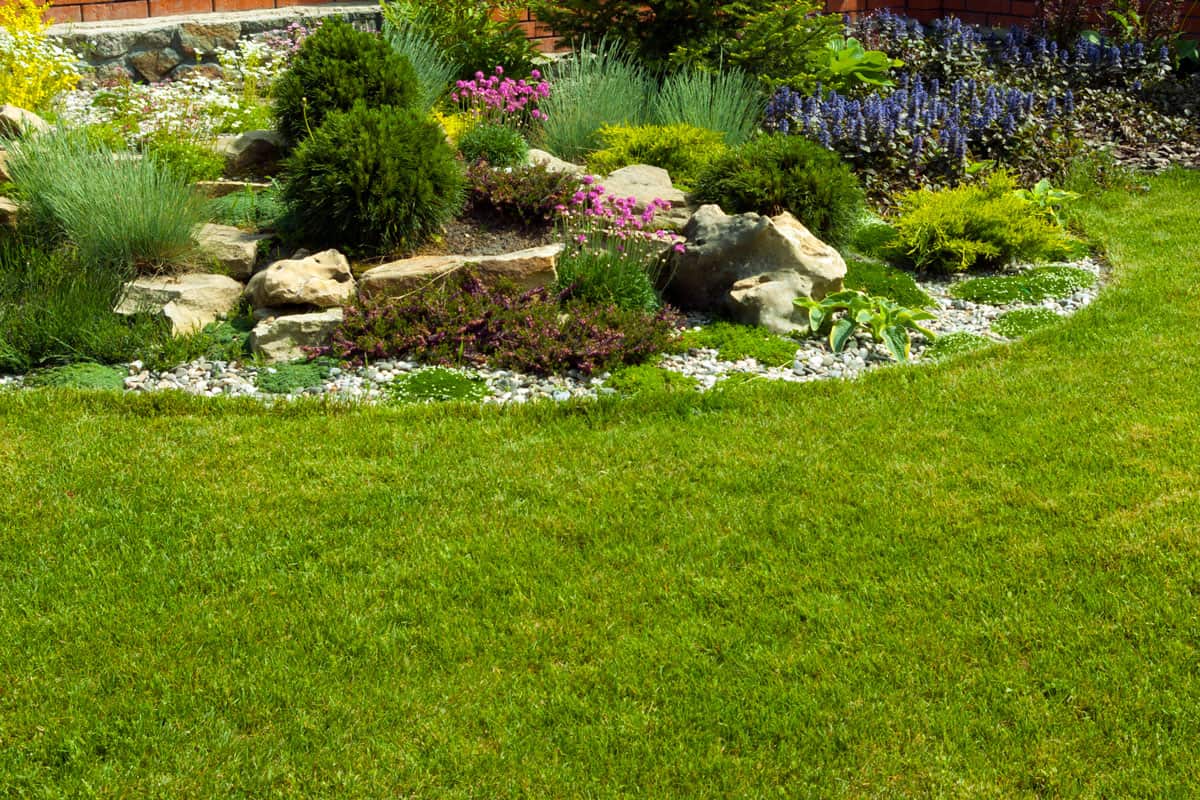
Summer should be a time for relaxing and finding reprieve from the heat, not swatting and scratching. With these plants in your garden, you'll be able to enjoy your Eden without menacing mosquitoes getting in your way.
If you found this article helpful, you may also enjoy these informative posts:
